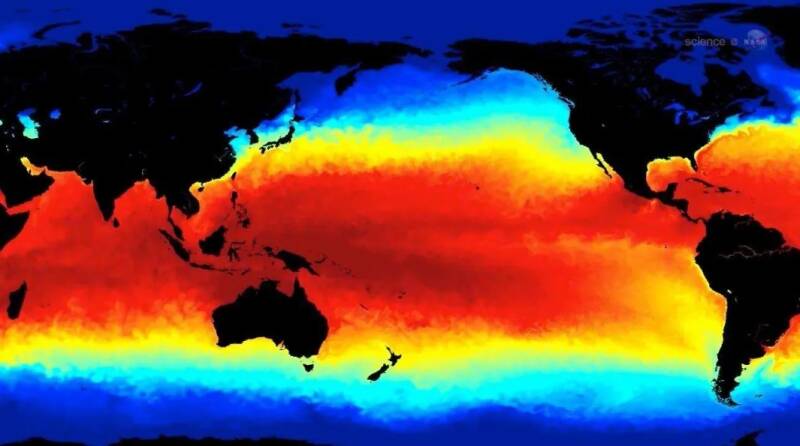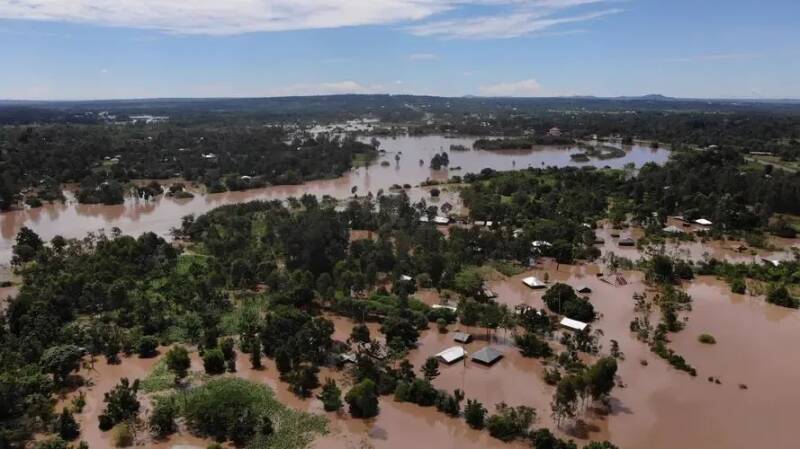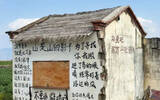289 people have been killed! Floods hit Kenya's agricultural industry hard
According to the meteorological department, the El Niño phenomenon formed last year is expected to end in April this year, but it will take June to July to truly weaken, so it still affects many coffee producing countries.
In East Africa, many countries have experienced heavy rains and caused severe floods, causing large numbers of casualties and displacing hundreds of thousands of people.

According to the United Nations International Organization for Migration, countries such as Burundi, Kenya, Rwanda, Ethiopia and Tanzania in East Africa are currently affected by floods, of which Kenya and Tanzania are the hardest hit areas.
Since mid-March this year, Kenya has experienced multiple rounds of heavy rainfall, causing floods, mountain landslides and other disasters. The current rain will continue throughout May. According to data from the Kenyan Ministry of Interior, at least 289 people have been killed and more than 280,000 people have been displaced. Some roads, houses and other infrastructure have been damaged, and local agricultural production has been severely affected.

As this year's rainfall far exceeded the average level for the same period in previous years, the surge in rainfall caused rivers to burst their embankments and landslides, inundating large areas of farmland and washing away thousands of livestock. Local farmers and herdsmen suffered serious losses. Some local officials said that the economic losses caused by the floods amounted to US$8 million.
It is understood that agriculture is the pillar of Kenya's national economy, and about 80% of the country's population is engaged in agriculture and animal husbandry. It mainly exports tea, horticultural products and coffee beans. And the hardest hit areas in Kenya this time are in the south and central parts of the country, the capital Nairobi and nearby areas.
These areas are also Kenya's main coffee producing areas, such as Nyeri, Nakuru, Kiambu, etc. It is currently in the flowering and fruiting period, and will not enter the picking period until June. This heavy rain and flood will seriously affect the next production season.
Moreover, most producers in Kenya are small-scale farmers, and they have been more severely affected. Some of these crops have failed to harvest, and the land has been flooded. Crops such as coffee beans and tomatoes cannot grow in flood water and are all rotten.
In order to recover as soon as possible, the Kenyan government launched an emergency disaster relief allocation at the end of April, allocating 4 billion Kenyan shillings to flood-stricken areas. In addition, International Finance Corporation IFC and Absa Group, members of the World Bank Group, will provide up to US$60 million in commodity trade financing facilities to Volcafe, one of the world's largest coffee traders, to strengthen Volcafe's operations in East Africa and support tens of thousands of coffee farmers in East Africa.
Financing will provide working capital to facilitate volcafe's purchase of coffee cherries from small farmers or local traders, increase assistance in processing, storage, transportation, etc., and support training on sustainable production techniques and good agronomic practices through the long-running Volcafe Way program to increase the resilience and profitability of coffee crops.
This will allow Volcafe to provide market access to more than 75000 East African farmers, continue to tap the huge potential of the East African coffee industry, while bringing East African coffee products to more markets.
Important Notice :
前街咖啡 FrontStreet Coffee has moved to new addredd:
FrontStreet Coffee Address: 315,Donghua East Road,GuangZhou
Tel:020 38364473
- Prev

Introduction of varieties grown in coffee producing areas in Thailand in Asian countries
In Asia, there are many coffee-producing countries, such as Laos, Indonesia, East Timor, China and Thailand. Thailand The Kingdom of Thailand is located in the south-central part of the Indochina Peninsula, bordering the Gulf of Thailand in the Pacific Ocean to the southeast and Anda in the Indian Ocean to the southwest
- Next

The thousand-layer filter is broken! The truth about the Internet celebrity coffee shop
▲ Click to pay attention| Daily Boutique Coffee Culture Magazine Coffee Workshop If you want to use one word to describe a coffee shop, it is estimated that "literature and art" will pop out of many people's minds. As a result, literary and artistic cafes have also been sought after by many tourists and have become a check-in point for Internet celebrities on the list of various shop search shops. Recently, tourists have traveled thousands of miles, admiring
Related
- What grade does Jamaica Blue Mountain No. 1 coffee belong to and how to drink it better? What is the highest grade of Blue Mountain coffee for coffee aristocrats?
- What are the flavor characteristics of the world-famous coffee Blue Mountain No. 1 Golden Mantelin? What are the characteristics of deep-roasted bitter coffee?
- Can I make coffee a second time in an Italian hand-brewed mocha pot? Why can't coffee be brewed several times like tea leaves?
- Hand-brewed coffee flows with a knife and a tornado. How to brew it? What is the proportion of grinding water and water temperature divided into?
- What is the difference between Indonesian Sumatra Mantinin coffee and gold Mantinin? How to distinguish between real and fake golden Mantelin coffee?
- What does bypass mean in coffee? Why can hand-brewed coffee and water make it better?
- Unexpected! Ruixing Telunsu lattes use a smoothie machine to foam milk?!
- % Arabia's first store in Henan opens into the village?! Netizen: Thought it was P's
- Does an authentic standard mocha coffee recipe use chocolate sauce or powder? Mocha Latte/Dirty Coffee/Salty Mocha Coffee Recipe Share!
- What is the difference between Vietnam egg coffee and Norway egg coffee? Hand-brewed single product coffee filter paper filter cloth filter flat solution!

